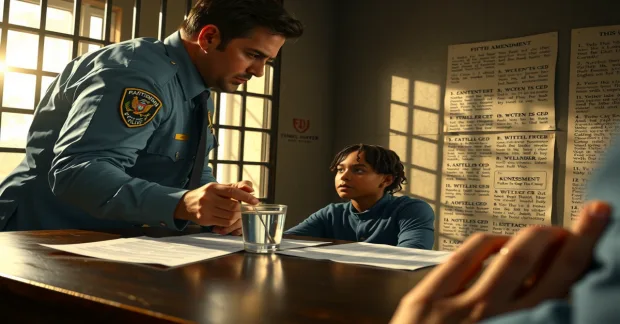
Obtaining and recording public notices is a critical aspect of maintaining transparency and providing information to the public. When it comes to streamlining this process, National Notice Record offers a comprehensive solution that can significantly improve the efficiency of recording public notices. By utilizing their advanced platform, various entities and organizations can reduce the time and effort required to obtain and record public notices, ultimately improving overall transparency and accessibility.
One of the most important aspects of National Notice Record’s platform is its ability to access a wide range of public notices from different government agencies and organizations. This includes important documentation such as the Federal Register/Vol. 87, No. 100/Tuesday, May 24, 2022, which contains vital information that needs to be readily accessible to the public. Additionally, by utilizing National Notice Record, entities and businesses can streamline the process of obtaining and recording these notices in a timely and efficient manner, ultimately improving the overall transparency and accessibility of important information.
Understanding National Notice Record (NNR)
Your afi33-322.pdf – Air Force – AF.mil has established the National Notice Record (NNR) as a system to streamline the process of recording public notices. This centralized database is designed to simplify the access and retrieval of important public notices, ensuring that critical information is readily available to those who need it.
What is National Notice Record?
National Notice Record (NNR) is a comprehensive system for the collection and dissemination of public notices. These notices can cover a wide range of subjects, including legal announcements, procurement opportunities, and regulatory updates. The NNR provides a centralized platform for government agencies, businesses, and individuals to access and publish these important notifications.
National Notice Record is a vital tool for maintaining transparency and accessibility in the publication of public notices. By centralizing this information, the NNR ensures that critical announcements are readily available to a wide audience, streamlining the process of disseminating important information.
The Evolution of NNR Systems
National Notice Record (NNR) systems have evolved significantly over the years, adapting to the changing needs of a digital world. From traditional paper-based systems to the development of online databases, the evolution of NNR systems has been driven by the need for greater accessibility and efficiency in recording public notices. The implementation of modern technology has allowed for the development of user-friendly interfaces and advanced search functionalities, making it easier for users to access and retrieve important public notices.
Evolution of NNR systems has also led to improved security measures, ensuring the integrity and authenticity of published notices. This has reduced the risk of fraudulent or inaccurate notices, enhancing the trust and reliability of the system as a whole.
The Advantages of NNR in Public Notice Recording
Any national notice record (NNR) system offers numerous advantages for the streamlined recording of public notices. From enhanced accessibility and searchability to reductions in administrative workload, NNR provides significant benefits for both government agencies and the public.
Enhanced Accessibility and Searchability
An NNR system offers enhanced accessibility to public notices by providing a centralized platform for accessing and viewing notices. This ensures that individuals and organizations can easily locate the information they need without having to visit multiple government offices or websites. Additionally, the searchability of NNR allows for efficient retrieval of specific notices based on keywords, dates, or other relevant criteria, saving time and effort for those seeking specific information.
Reduction in Administrative Workload
To further streamline the process, NNR significantly reduces the administrative workload for government agencies responsible for recording and managing public notices. By automating the recording and indexing of notices, agencies can allocate their resources more effectively, leading to increased efficiency and cost savings. Introducing NNR system also mitigates the risk of errors that may occur during manual data entry, ensuring the accuracy and integrity of the public notice recording process.
Implementing NNR in Government Entities
For government entities looking to implement National Notice Record (NNR) into their public notice recording process, it can seem like a daunting task. However, with the right steps and integration, the process can be streamlined for more efficient and accurate recording. Here’s how to get started with NNR in your government agency.
Steps Towards Adoption
On the path to adopting NNR, government entities should first familiarize themselves with the platform and its benefits. This can be done by reviewing the Faqs – National Notice Record to understand how NNR works and how it can benefit the agency. Next, it’s important to designate a team or individual within the agency to oversee the implementation process. This person or team will be responsible for training staff, ensuring compliance with regulations, and communicating the benefits of NNR to the rest of the agency.
Case Studies: Success Stories of NNR Implementation
To showcase the effectiveness of National Notice Record (NNR) in streamlining the process of recording public notices, we have compiled a list of case studies from various local and state governments. These success stories highlight the significant impact of implementing NNR in improving efficiency, transparency, and accessibility of public notices.
- City of Springfield: Increased public notice viewership by 40% after switching to NNR.
- County of Jefferson: Reduced notice processing time by 50% and saved $100,000 annually with NNR implementation.
- State of Texas: Achieved 100% compliance with public notice regulations and increased public engagement with streamlined NNR processes.
Improved Transparency in Local Governments
Studies have shown that the implementation of NNR in local governments has led to a significant improvement in transparency. By providing a centralized platform for public notices, NNR has made it easier for residents to access critical information about government activities, ordinances, and events. This transparency has fostered greater trust and accountability in local government processes, ultimately strengthening the bond between the government and the community.
Challenges and Considerations
Not surprisingly, the transition to a digital platform for recording and accessing public notices comes with its own set of challenges and considerations. It is important to address these issues in order to ensure a seamless and efficient process for all parties involved.
Overcoming Technological Barriers
Barriers such as outdated systems, lack of technical expertise, and resistance to change can pose significant challenges when implementing a new platform for recording public notices. In order to streamline the process, it is crucial to invest in user-friendly and intuitive technology that can be easily adopted by a wide range of users. Additionally, providing adequate training and support for personas who may be less familiar with digital platforms can help overcome resistance to change and ensure successful implementation.
Addressing Privacy and Security Concerns
Security and privacy are paramount when it comes to recording and accessing public notices. There may be concerns about the vulnerability of sensitive information and the potential for unauthorized access. Implementing robust security measures, such as encryption and access controls, can help alleviate these concerns and create a secure environment for subject information. Additionally, it is important to comply with relevant privacy regulations and ensure that all products meet the necessary standards for protecting user data.
Technological solutions are integral in addressing privacy and security concerns, and it is essential to choose technology that prioritizes the protection of personal information while still providing a seamless and efficient recording process.
Conclusion
Hence, it is clear that the National Notice Record can significantly streamline the process of recording public notices. By providing a centralized platform for managing and accessing public notices, it eliminates the need for manual documentation and retrieval. This not only saves time and resources but also ensures accuracy and accessibility of public records. With the implementation of the National Notice Record, the process of recording public notices can be simplified and made more efficient, ultimately benefiting both the government agencies responsible for publishing notices and the general public who needs access to this information.




















